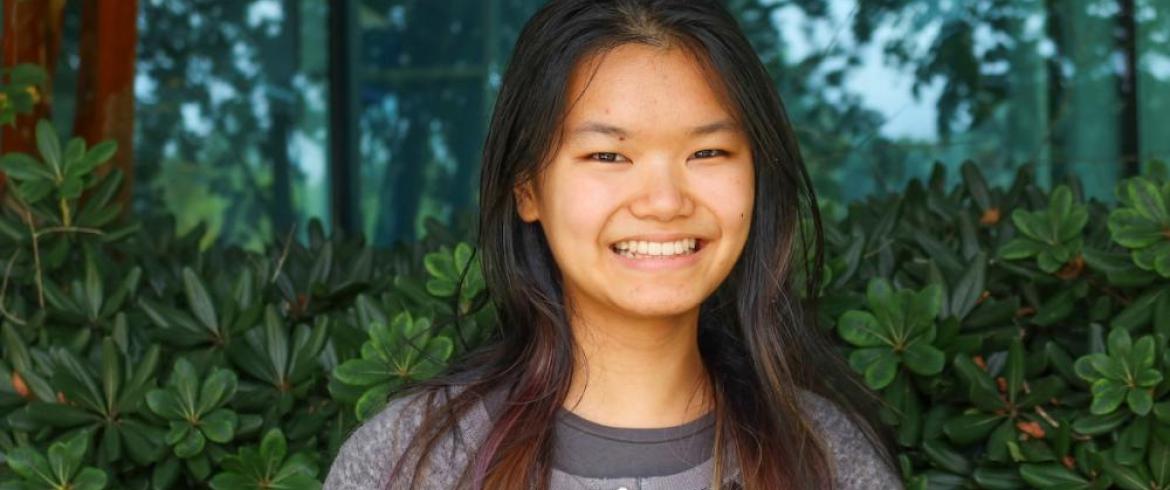
Bailee Ku, a Florida State University undergraduate student at the FAMU-FSU College of Engineering, uses her work in the research lab to discover her engineering industry passion. (Photo: FAMU-FSU Engineering/P Radulovich)
Undergraduate Research Spotlight
Bailee Ku is a second-year mechanical engineering major at the FAMU-FSU College of Engineering. Originally from Taiwan, she is an undergraduate researcher at the Center for Advanced Power Systems (CAPS) through the Florida State University Intern Program.
What is your research area of interest?
I haven’t quite decided what I want to do after graduation. I’m primarily interested in medical devices and aerospace. I want to explore other internships during upcoming summers to see what other areas might be engaging.
What program are you studying?
I’ve been at CAPS since the beginning of May 2020, and I’d like to continue there. I started out doing data analysis for a bioinformatics lab at the University of North Carolina at Charlotte.
What is it like to work in research as an undergraduate student?
The summer of 2021 at CAPS was my first in-person research position. In the past, I’ve either completed small experiments on my own or worked on data projects that don’t require physically interacting with materials. It has been amazing—both in the support from other undergraduate and graduate students—and Dr. Peter Cheetham. I learn better if I can mess around with a project in person. I’ve had the chance to observe some of the high-voltage cryogenic experiments, which were very cool (literally and figuratively!).
What was the best thing about your summer research experience?
I worked on building a circuit based on a research paper that Rachit Argarwal, a graduate student, found for me. I did not know how to construct circuits before this, so was quite a learning experience! I worked with Jarrett Touchton, an undergraduate student in civil engineering, to set up an experiment on Novec, an engineered fluid created to be a cleaning agent. I enjoy working in groups, especially when we all have different areas of expertise, and I like working with experienced people that I can learn from. The best thing was picking up hands-on skills like soldering.
What are your long-term goals?
I want to spend my summers interning in different fields in the engineering industry to see if I think that type of work suits me. It would be enlightening to explore both small and large companies. After graduating, I want to work for at least a few years in the field and then decide whether to pursue a graduate degree. Spending some time working will give me an idea of what topic captures my attention enough to spend years on it!
What inspires you?
I like to be challenged. There is a sweet spot of knowing something about a topic and still having plenty to learn. I do not want to be perpetually confused, but curious enough to not be bored.
What advice would you give to other students interested in research experience?
Just go for it! It’s an opportunity to meet new people and develop skills that you might not dive deeply into otherwise. It might seem overwhelming at first, but it is all right if you do not understand what is going on, or if you have questions. Ask questions if you need to. If you put work and time into research, you will learn proportionally.
RELATED ARTICLES
Opportunities for undergraduate research experience give students path to success
Center for Advanced Power Systems Receives $31M Contract from U.S. Navy
